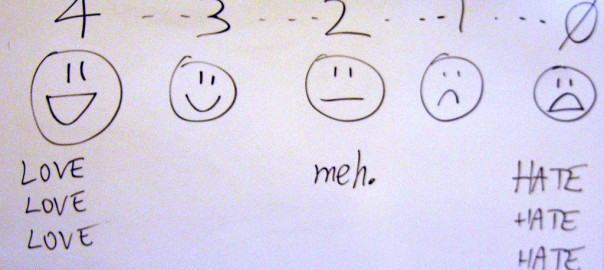There are no small roles, only small actors.
– Constantin Stanislawski
In our house, every Saturday night is family movie night. Yesterday, we watched the 2002 version of Spider-Man, starring Tobey Maguire and Kirstin Dunst, introducing the kids to one of my favorite superhero movies. I had totally forgotten that he was in the movie, but about half-an-hour in, as Peter Parker used his new powers to beat up some high school bullies, there he was, in the corner of the screen just behind Mary Jane Watson: the World’s Greatest Extra, Jesse Heiman.
Jesse Heiman has made minuscule appearances in dozens of movies and television shows. He’s been called the “most ubiquitous actor in Hollywood.” Most of his “roles” aren’t even roles, having neither lines or names. He’s essentially playing human scenery. His are small roles, notably only for the sheer number of them. Still, he must enjoy this path he’s chosen, since he’s been following it for more than a decade.
Are there really no small roles? Anyone could do what Heiman did in Spider-Man. If we’re judging the importance of a role – whether in a movie or in life – purely on the amount of attention it receives, or the amount of influence it wields, then we must distinguish between large roles and small ones. Continue reading Could You Be the World’s Greatest Extra?



